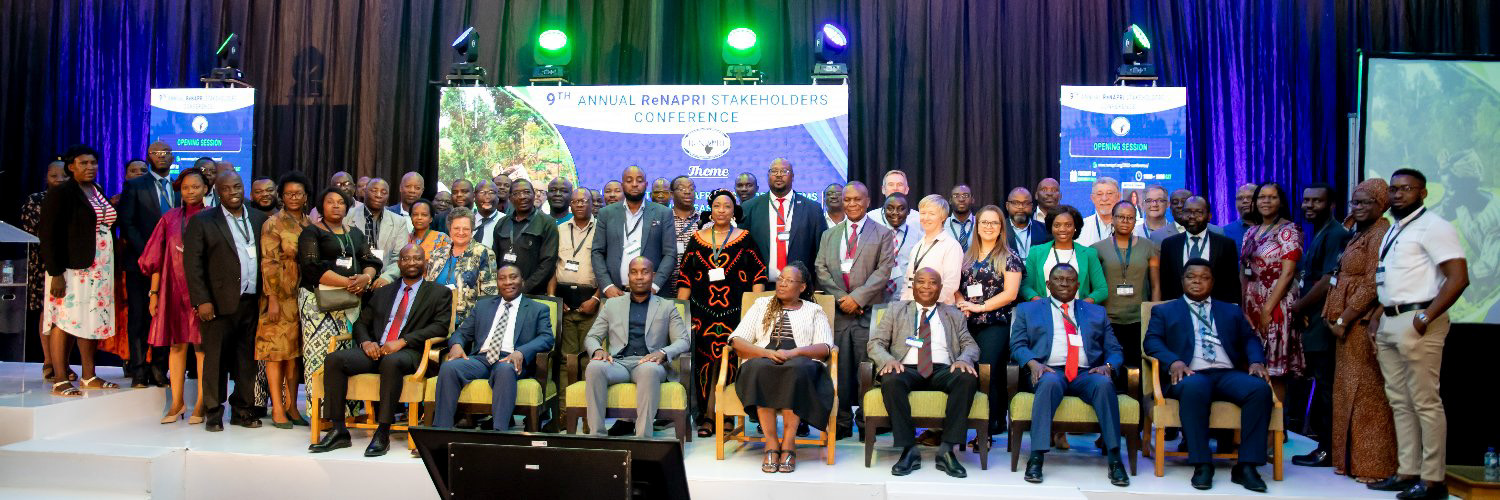Ten years of ReNAPRI brings new initiatives and new name at annual conference
ReNAPRI annual conference brings together stakeholders for 3 days of discussions and launch of their new name, the African Network of Agricultural Policy Research Institutes (ANAPRI)
Windhoek, Namibia – on November 1-3 the 9th Annual Network of Agricultural Policy Research Institutes (ReNAPRI) Stakeholders Conference took place. The theme for the gathering was “Looking ahead: Strengthening Africa’s food system through increased productivity, climate resilience and adaptation.” Several MSU faculty were speakers at the event, including David Tschirley, director of the Innovation Lab for Food Security Policy, Research, Capacity, and Influence (PRCI) which supports ReNAPRI.
On the last day of the event, it was announced that ReNAPRI will now be ANAPRI, the African Network of Agricultural Policy Research Institutes, aligning with its expanding network of African continental think tanks and the network’s strategic plan. ReNAPRI launched in 2012 to coordinate data sharing, collaboration, innovation, and policy experience between African national agricultural centers. In the ANAPRI network, there are now 12 institutions in as many countries, spanning the continent.
In the message from the Executive Director of ANAPRI, Nalishebo Meebelo shared a number of vital interventions ANAPRI has been working on. These activities target researchers, policymakers and stakeholders at national and regional levels throughout Africa, including the Comprehensive Africa Climate Change Initiative (CACCI), the upcoming Africa Fertilizer and Soil Health Summit taking place in 2023, analyses of key commodity value chains in light of national agricultural investment plans (NAIPs), and continued growth of the ANAPRI network.
ANAPRI announced continued implementation of the Comprehensive Africa Climate Change Initiative (CACCI) through partnership with the African Union and PRCI. CACCI supports AU member states to develop plans to track, analyze and implement Nationally Determined Contributions (NDCs) and National Adaptation Plans (NAPs). ANAPRI is committed to supporting the Africa Climate Change and Resilient Development Strategy and Action Plan, and the AU Green Recovery Action Plan.

As part of the process to increase African agricultural productivity through the effective use of fertilizer and sustainable soil management practices, ANAPRI is supporting the African Union Commission, AUDA-NEPAD, and other stakeholders in the development of the Africa Fertilizer and Soil Health (AFSH) Summit, scheduled to take place in 2023. This summit will build on the momentum created at the African Union Abuja Fertilizer Summit held in 2006, bringing in the latest information and research to develop a 10-year fertilizer and soil health action plan.
Congratulations were in order during the conference for the Innovation Lab for Policy Leadership in Agriculture and Food Security (PiLAF) based out of the University of Ibadan (UI), Nigeria. As part of the Stakeholders conference, PiLAF was inducted as the latest think tank in the ANAPRI network. PiLAF is a PRCI Center for Policy Learning created to work with policymakers and local stakeholders to develop localized, relevant research on which to base policy recommendations.
Michigan State University has a long history of partnering with African institutions that continues to this day with ANAPRI. Several MSU faculty spoke at the Stakeholders Conference, including keynote speaker, Titus Awokuse, Associate Dean for Research and Strategic Partnerships, International Studies and Programs. For the session titled, “Megatrends Affecting African Food Systems: Implications for Government Action” Richard Mkandawire, Africa office Director of the Alliance for African Partnership and MSU Foundation Professor emeritus, Thom Jayne, were panelists. Another keynote speaker connected to MSU was John Olwande, a research fellow at the Tegemeo Institute, which was previously supported by MSU. Other MSU connected panelists were MSU Professor Sieglinde Snapp; Antony Chapoto, Research Director at Indaba Agricultural Policy Research Institute and CACCI-Africa lead; and Dr. Ndeye Fatou Faye Mane of the Institut Sénégalais de Recherche Agricoles (ISRA-BAME), another PRCI Center for Policy Leadership.
The Agricultural Trade Policy Institute (ATPI) at the Namibia University of Science and Technology (NUST) hosted the ANAPRI Stakeholders Conference this year in Windhoek, Namibia. A wide range of stakeholders actively engaged in the Africa’s food systems and agricultural transformation agenda were included. National policymakers, the AUC, regional and sub-regional economic organizations, private sector representatives, farmer’s organizations, development think-tanks and researchers as well as development partners and the media attended the event.



 Print
Print Email
Email




